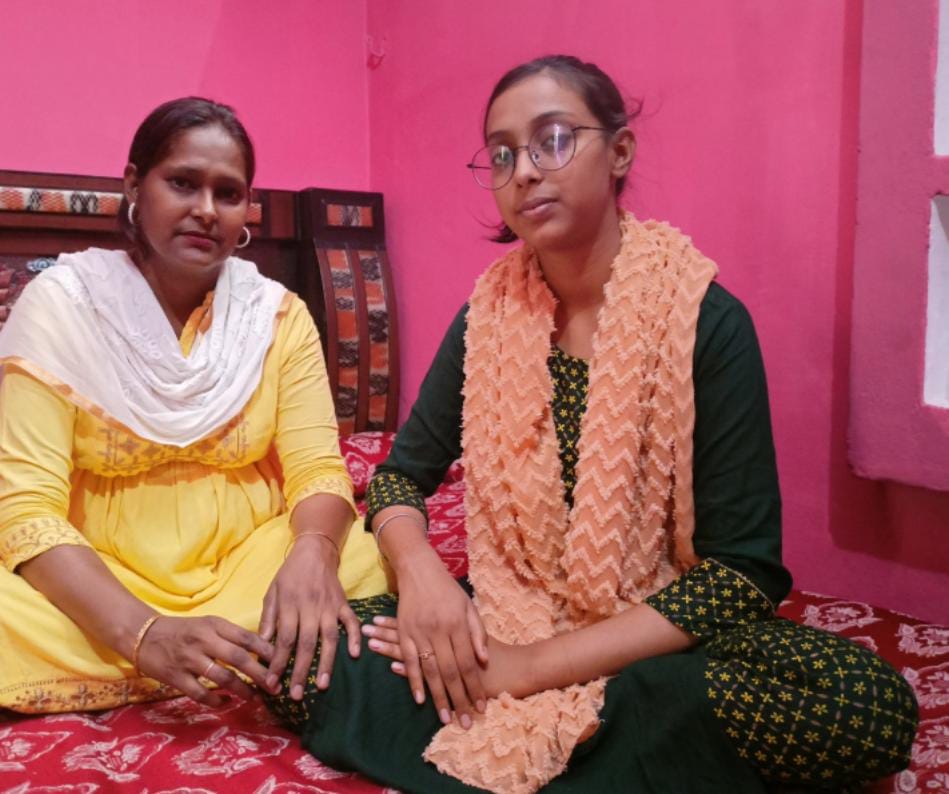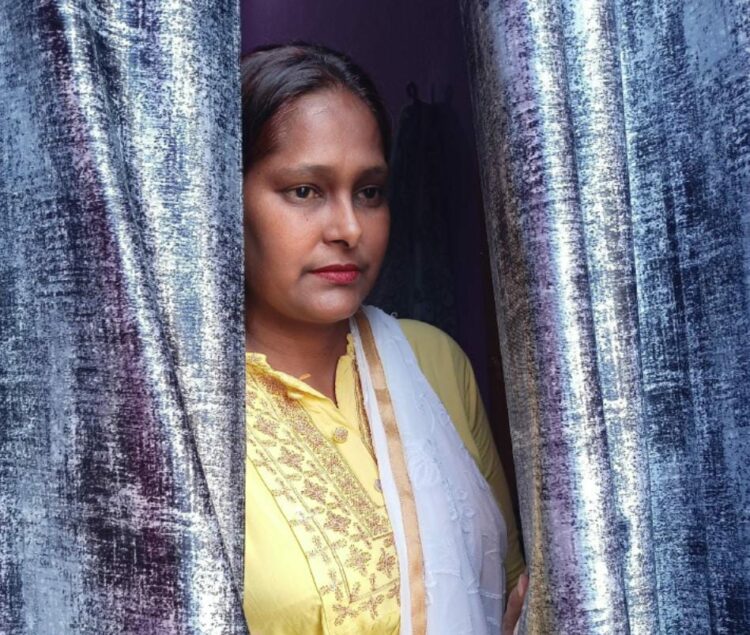Life of women in Islam is tough beyond explanation and to prove this there are a number of cases, from polygamy to Triple Talaq, Halala and even Hijab. There is no end to the list of patriarchal rules and customs forced upon women in Islam. The Bhartiya Janata Party (BJP), since 2014, has been working for the betterment of the state of Muslim women in society. First and foremost is the removal of the instant ‘Triple Talaq’.
We bring to you the story of the rise of a Muslim woman from the oppressive ideas of Islam, her story gives hope and tells us it is never too late.
Rani Salmani a single mother is raising her daughter Ilma, in her town Purkazi in the Muzaffarnagar district of Uttar Pradesh. She lives and works alone to make sure her daughter, who wishes to become a doctor is able to fulfil her dreams.
Rani was born in Purkazi village, she never had an opportunity to go to school, as she was raised among 2 brothers and 5 sisters. Her father was a street vendor in the local market. She wished to go to the school but her dream was never fulfilled. All the sisters were forced to do the household chores while her brothers were allowed to study till upper primary.
In 2004, at the age of 16, she was forcefully married to a much older man. Her family never asked about her wishes. After a few days of her marriage, she was first abused verbally by her husband. This continued regularly, and then her husband started beating her.
Rani was in deep introspection as to why she was being beaten and what wrong she had done. She was tolerating it quietly as she thought of her family, especially her father. She was also taught to stay quiet from her childhood and it was normalised that men inflict violence and women must cope-up with it. The violence against Rani was increasing in many forms—verbally, physically, mentally, and sexually.
Within a year of marriage, she became pregnant and had a miscarriage as well. The blame for the miscarriage was inflicted upon her only. Things were getting worse. After some time, she came back to her home. At that time, she was two months pregnant. Her in-laws’ family informed her that Rani’s husband gave her divorce.
Even her parents and brothers blamed her for the failure of this marriage. With the baby in her womb she was struggling to survive, meanwhile, she tried committing suicide as well.
She heard from somewhere that there is an office in Purkazi that helps women like her. The office was of Astitwa which works for the rights of women and fights against patriarchal norms in society. She started attending the meetings of Astitwa, in her initial days. Rani gave birth to her daughter Ilma.

After a few days, she met Rehana, the founder of Astitwa, who guided her about how to take her rights. She became a part of the organisation.
This was not accepted by her husband and his family. In 2008, she was attacked by them while going to the city. They berated her badly and left her body near the highway.
This was not it as her brother was against her ideas, he also came to attack her. Rani held his hands and told him that he has no right to her life and that she will go to the police if he will ever threaten her again.
About the attack, Rani as quoted in media reports says, In 2007 and 2008 she was attacked by her in-laws, both the time she was wearing a burqa. In one of the attacks, the attacker held her burqa and surrounded it around her neck, she was almost choked with the burqa. That day, Rani decided to leave it.
She decided to break the shackles of patriarchy and chose to live with dignity. She removed the burqa and burned it down as a sign of protest. From that day, she decided that she was not going to look back.
To begin with, she first enrolled herself in a school where she studied till high school. Simultaneously, she worked as an activist in the Astitwa organisation and made sure she keeps up with her studies at night. Besides this, she was also doing odd jobs to raise her daughter.
In an exclusive interview with Hindi Daily, Dainik Bhaskar, Rani said, “When I stopped wearing Burqa and went out, be it for my work, at social gatherings or family meetings, people started calling me a prostitute, on my face”.
People also put pressure on her family and father to stop her from working however, Rani was unstoppable. With every victim she met at Astitwa, she was growing even stronger. Many women like her came to the Astitwa office, and she began helping them by taking their cases to the police station. She told them to not stay silent.
As her daughter grew up she started sending her to the school. She is a trainer and gives counselling to women. Also, she is creating awareness towards girl education by talking to families to send their daughters for schooling.
She helped one family after learning they have stopped their daughter from going to school. Rani went to meet the family. She got to know that the girl’s father was not in favour of sending their daughter to school. But she talked to them and explained to them why it is important to send daughters to school. She convinced them and now the girl is going to her school.
Rani recalled a victim’s story, where a Muslim woman was married to a man who works in a foreign country. After the nikah, she found that he was already married. He used to beat her up every single day. When the woman finally confronted him, saying even after having a wife, why he marry her?
The answer was, “One wife will go to a foreign country with me, and when I will return, another should wait for me in my village”.
Rani runs a Burqa campaign in her locality, where she meets women from her community and makes sure no one is wearing the veil out of pressure. If they wish to wear it, they should but they should never do it because they are forced to wear it.
Rani is working to protect the women in her community from problems like material violence, polygamy, triple-talaq, Halala and Burqa.
The founder of the organisation Astiwa Samajik Sansthan Rehana Adib told Organiser that she started this group back in 2005 in Muzaffarnagar. However, she has been working with social groups since 1989. At Astitwa they have been fighting against gender-based discrimination, abusive marriage, Talaq, assault and everything that leads to disrespect of women.
The cases Astitwa deals with a range from normal disputes between husband and wife be it marital violence, arguments, or abuse to cases of Talaq, Halala and others. She added, in extreme cases, they take the help of the police. Now that one-stop centres are available, they make sure the women get accommodated there if their husbands left them. Also, they make sure the women are capable of looking after their livelihood.
Rehana started working for the rights of the women from the ‘Imrana Rape Case‘, the case from back in 2005 where a 28-year-old woman was raped by her father-in-law in Charthawal village in the Muzaffarnagar district Uttar Pradesh. She added, the father-in-law in this case is serving a sentence of 10 years and was fined Rs 10,000. Rehana was actively involved in this case, she added.



















Comments